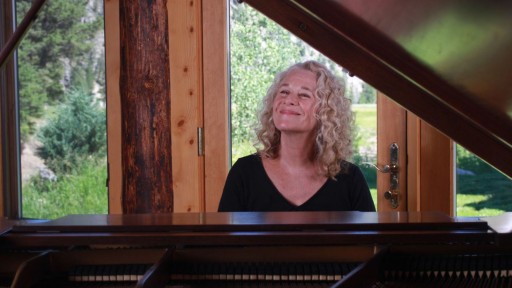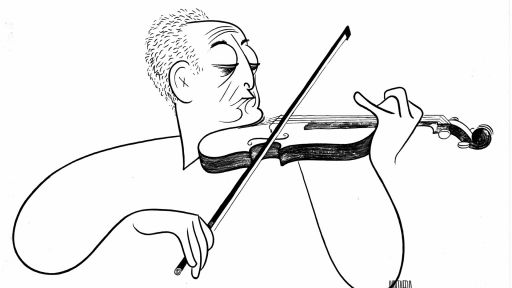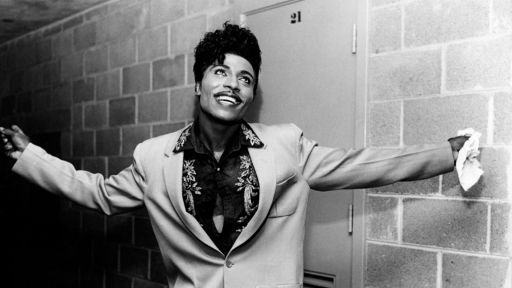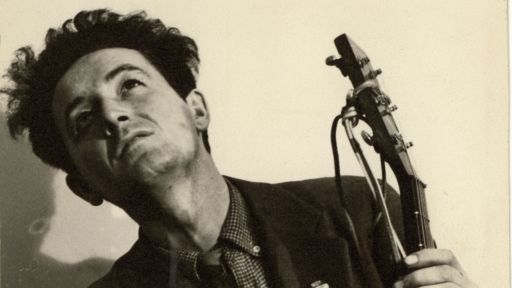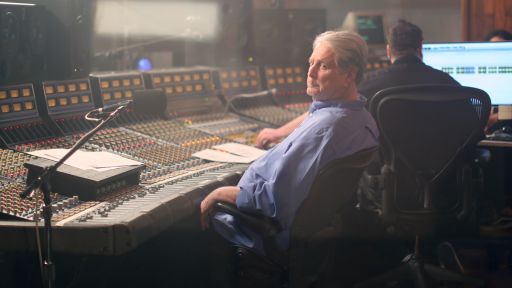TRANSCRIPT
- The next time I remember seeing Quincy was in Birdland after I had moved to New York in 1960.
I went to New York January 18th of 1961.
And sometime during the year 1961, because Birdland was the home, the mecca, for jazz, modern jazz in particular.
And I was always going down to Birdland to see what was happening.
Birdland was located on 52nd and Broadway.
And one time I went down, and usually they had two groups, there would be an opening act, and then the headlining group.
And Quincy Jones was there, so I had to see Quincy with his big band.
I wanted to hear 'Stockholm Sweetnin'' live.
I got to meet him during that time.
So here we are 40 years later.
I've known this guy for 40 years.
- Just imagine me being 21 years old, having total tunnel vision about jazz, except for classical music, I liked classical music and jazz, and that was it.
I mean, that was my world.
The world that I was just kind of peeking into from a professional standpoint, from a musician's standpoint, professionally.
So, for me, Birdland was heaven.
(Herbie laughing) I mean, to play in Birdland was a big deal, that would be like playing Carnegie Hall.
To see anybody at Birdland, or to work at Birdland, means that you've really arrived on the jazz scene.
And the jazz scene in the sixties was hot.
It was innovative.
It was in clubs, still primarily, there weren't a lot of big concert venues where they had jazz concerts.
The Newport Jazz Festival was alive and well, that had started, I think, in the late fifties.
But, jazz was really hot in the clubs, clubs were always packed full of hip people coming to see jazz, people in their twenties, people in their 30s, some teenagers, that was really the hot music.
In '61, rock and roll was in its infancy.
This was pre Beatles, as far as America was concerned anyway, pre Rolling Stones.
Anyway, I didn't care about that anyway.
I wasn't even interested in that.
I wasn't interested in Elvis.
That was a whole other scene.
I cared about Miles Davis.
I cared about John Coltrane, Bill Evans, and Quincy Jones.
Those were my heroes at that time.
And so I got a chance to see the young Quincy Jones, but he was older than me, see.
(Herbie laughing) Quincy had this great reputation of being one of the young lions as far as the big band scene was concerned, along with Lee Morgan on trumpet, Freddie Hubbard on trumpet, and Miles Davis, and these were the hot people at the time.
And of course, Dizzy Gillespie was still around, and Dizzy had a great big band, comp basically had a great big band, but Quincy had some new kinds of arrangements, new harmonies, a new perception of the use of a big band, and that made him extremely exciting to a young person like me.
In the early sixties, all of a sudden we begin to see Quincy's name in another context, he becomes, he becomes an executive with a major record company, Mercury Records.
He was a head of A&R.
Now, he was the first Black record executive of a major company.
Looks ludicrous today to think, what they didn't have anybody else before with major companies?
But that's the way it was, Quincy was really the first.
So he really broke ground as far as race relations were concerned, as far as the kind of, let's say the color of the business side of music.
They had a lot of Black artists, but when it came to the people who actually owned the labels and who control the music, the Black people were not in control of that.
Again, we were like hired hands.
But Quincy became the first, so he opened a doorway.
And as an African American, I mean, we all recognize that, that he is a guy that's a real pioneer from not just the music scene, but from a a political and social scene.
And that was a very important step that he made in order to hold the doorway for the future.
One of the big records, probably maybe the biggest record that Quincy had at that time, certainly one of the biggest ones, was Lesley Gore, right?
'It's My Party.'
That was a huge record at that time.
It was kind of, I don't know, bubblegum pop or something, I don't know exactly what it was, but it was a big hit record by this Black record executive who was one of our heroes.
As far as the musicians were concerned, to my recollection, we didn't even care that it was Lesley Gore, a whole other genre of music, that wasn't an issue for us to quibble about.
That was small potatoes.
I mean, we were just happy that we finally got one of our guys in that end of the music business.
It was the beginning of something that was very important as far as we were concerned.
And so, if Quincy's successful, it's better not only for African American musicians, it's also better for the music scene and it's better for America.
This is a country that has in its population ties connecting us with every country and every race on the planet, but it wasn't represented so well in business back in those days.
Of course it's changed a lot since then, but there's still a lot of, there's a long way to go though.
(Herbie laughing) Quincy's sound, if you wanna call it, is more like that of a chameleon.
He's able to change colors, timbres, tone quality at will.
He can work as easily with Michael Jackson as he could with Snoop Doggy Dog or with Barbra Streisand, Frank Sinatra, movie scores you name it, 'course he's done it.
He's been able to take this genius of his and translate it in to any kind of sound that he chooses, any kind of direction that he chooses.
I think the core of Quincy's sound comes from his lust for life, and his feeling that any genre is equally valid.
And his curiosity about how he can find a place in any of the genres.
He's fearless as far as that's concerned.
He's not the kinda guy that says, 'No, I can't do that.'
If you want Quincy to do something, you tell him that he can't do it, and of course he will, he'll do it.
He's that kinda guy.
So he's got that kind of flexibility.
One of the great reasons why I admire Quincy Jones is because of his unbelievable talent for doing movie scores.
Some of the most beautiful music for scores was done by Quincy Jones.
I mean, he's done, dozens, no, he's done scores of movie scores, right?
And he's well established in that industry.
He helped carve out the modern concept of movie scoring, as a matter of fact, in that industry.
What a lot of people don't know is that I've done about maybe 10 movie scores myself.
The first one I did in 1966, it was called 'Blow Up.'
And that was because Michelangelo Antonioni, the director, was a big jazz fan and he actually knew my music.
The second one was called 'A Spook Who Sat By The Door,' Ivan Dixon was the director.
Ivan Dixon was an actor that was on 'Hogan's Heroes,' the Black actor that was on on that.
But he also directed a few movies.
And he knew my music.
Then after that, I did a movie called 'Death Wish.'
And that was followed by, I did 'Soldier Story,' I did 'Harlem Nights,' Eddie Murphy's film, I did 'Around Midnight.'
But, the point I wanna bring up is that from that third film on, it was really Quincy Jones that made it possible for me to get my foot in the door of the film scoring business, because either he would suggest me, or directors would call him and say, 'Hey, Q, what about this guy, Herbie Hancock?
What do you think?'
And Quincy would always give me an A rating and reassure them that they would be making the right choice by choosing me, and I will always be eternally grateful to Quincy Jones because of his compassion for providing that doorway for me to enter this wonderful field.
- [Interviewer] There is this amazing footage of you and Quincy in the early eighties looking at early synthesizer technology.
(Herbie laughing) - One time I got this call from a guy who was representing a company called Fairlight, and he had this new digital instrument that had a computer built into it.
And it was a keyboard.
It had a touch screen, which nobody even heard of back in those days.
This was in the eighties.
I guess maybe mid eighties.
Touch screen, you could draw wave forms on it.
I mean, he had these things that, I hadn't even dreamed about stuff like this, and I'm into technology.
I was an engineering major for my first two years of college, so I'm into that kind of thing.
So he called me up and it was an Australian company, anyway, he was coming to Los Angeles to show it to Stevie Wonder.
I said to this guy, 'You gotta show this to me first, you gotta show it to me, I gotta see it.'
Well, I knew that Quincy Jones was also interested in new things.
He didn't wanna be left out of the out of the loop.
So, I called him up, and I called up a guy named Geordie Hormel, who owned a recording studio, West LA Music.
So I called both of them over and I said, 'Look, this guy's coming over to demonstrate this instrument.'
Anyway, they both came to see it.
When the day was done Quincy was blown away by this Fairlight, but he didn't want to commit himself to buying one right then, he wanted to check it out and kind of have it marinate in his head, figure it out for a minute.
Geordie Hormel in the meantime, pulled out enough money to buy two of these things.
And they were expensive at the time.
They were $25,000 a piece, which was a lot of money for anything back in those days.
And Geordie pulls out 50 grand to pay this guy.
And the guy said, 'No, I can't do this.'
But Quincy kinda took his time.
I don't think he ever really bought one, but he used it.
I think he used it in some TV shows, maybe he used it in The Ironsides.
I don't know, I'd have to find out from him, exactly how he used it.
But Q was like that, he wanted to know, he said 'Anytime anything new comes out, give me a call.'
So he's got that kinda basic curiosity.

